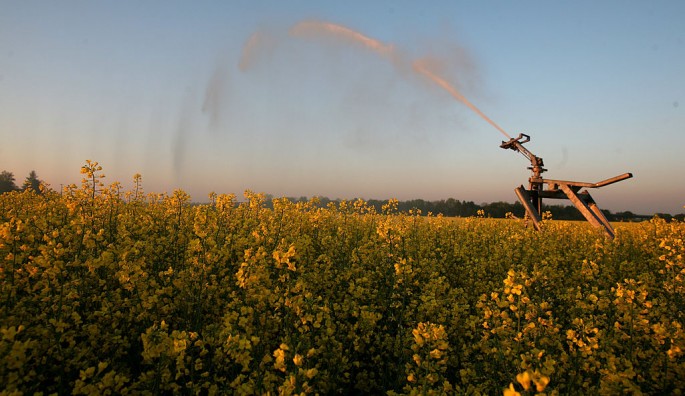China's recent restriction on canola imports from Canada reignited a debate on the motive behind it: whether it was purely science or was tainted by politics.
Recent reports revealed that new negotiations are underway between China and Canada after the former implemented new restrictions on the import of canola products from the latter.
According to Global News, Canadian Prime Minister Justin Trudeau is set to bring up the issue during his visit to China with trade minister Chrystia Freeland during the G20 Summit this September.
Deja vu
An article from the Globe and Mail emphasized the role of University of Manitoba professor of plant sciences Dilantha Fernando in the controversy linked to a disease caused by the fungus Leptosphaeria maculans known as "backleg."
According to the article, the rekindled debate on the restrictions on canola imports from Canada gave scientists working with Fernando a sense of déjà vu.
"We've been down this road before. It turned out to have occurred in a time when China didn't need to import so much [canola]," said University of Guelph retired crop physiology professor Dave Hume who served as a crop consultant in the research.
Dr. Fernando and his friends were among those who were brought in to clear the issue on China's backleg concerns the first time it surfaced.
Since they began working with Chinese scientists, Fernando and Co. were able to improve regulations on canola imports from Canada.
Unfortunately, they are now brought to tread the same waters a second time as China cited backleg as the reason for the imposition of the new, stricter regulations on the trade.
Because of this, Fernando was forced to reiterate that the pathogen that causes the troublesome disease is far from emerging in the Middle Kingdom.
"The disease has been growing for a long time. The pathogen has not established there. That's a very good [indication] that it will not," he said.
New Rules on Canola
In 2009, China imposed trade rules covering Canadian exports that required them to have certificates that would prove the cargo was free of the dreaded disease.
At the time, the Chinese government cited a 2008 research which concluded that there was a "serious, if small" risk of contamination.
Because of this, Canadian exports to the Middle Kingdom dropped from 2.2 million tonnes between 2009 and 2010 to a mere 0.9 million tonnes for the period covering 2010 and 2011.
While the Asian country relaxed the restrictions in 2012 thanks to the efforts of Fernando and his team, new restrictions are now being imposed, something experts believe is a show of trade power of the world's second biggest economy.
"I think it's a bit of a bluff by China to say, 'Look, we can just go somewhere else.' If they could do that, they would probably already be doing that," University of Saskatchewan agricultural and resource economics assistant professor Stuart Smyth explained.



























